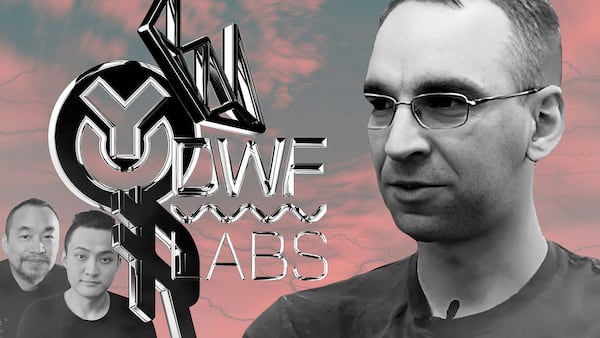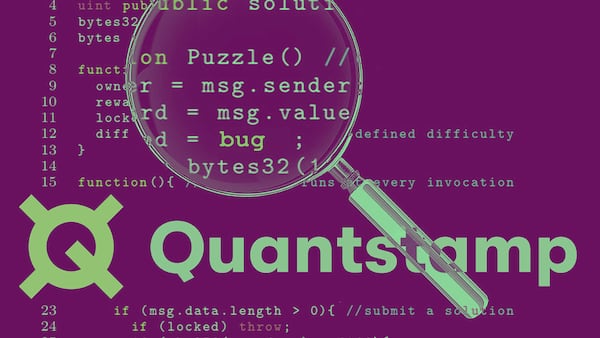- Last summer the US Treasury Department sanctioned Tornado Cash, a protocol that obscured the flow of crypto.
- A federal judge rejected the arguments in a Coinbase-funded lawsuit last week.
- The case was a longshot, according to attorneys, given the national security implications.
When the US last year sanctioned Tornado Cash, the industry howled. Punishing a protocol that is just a tool made from lines of code was unprecedented, it argued. Would Washington sanction a book, or a hammer?
Industry players filed lawsuits and assailed the US Treasury Department for violating Americans’ financial freedom and their Constitutional right to free speech. Last week, one of those lawsuits failed.
Rejection
The complaint was filed by Preston Van Loon, an Ethereum core developer, and other Tornado Cash users and funded by U.S. crypto exchange Coinbase. On Aug. 17, a federal judge in Austin, Texas, rejected each of the lawsuit’s arguments. Coinbase Chief Legal Officer Paul Grewal has said his company would support an appeal.
The problem, according to attorneys who spoke to DL News, was that the sanctions were issued in the name of national security. Courts often defer to government agencies in such cases, the lawyers said.
Tornado Cash is popular with the Lazarus Group, a cybercrime outfit affiliated with North Korea. The country has used laundered crypto to fund its nuclear weapons program, according to US officials.
NOW READ: North Korea accelerates nuclear missile programme with ‘treasure sword’ — $1.7bn from crypto heists
“It’s unfortunate that it was in many ways a [case] that was nigh impossible to win,” Evan Zinaman, attorney and the founder of crypto law firm Trailbreak, told DL News. “An agency’s application of its own rules has great deference, unless it’s plainly inconsistent with the regulations [the agency says] they’re acting under.”
The law gives the federal government “a lot of leeway” in cases that touch on national security, according to Nathan Postillion, an attorney at Gleason, Flynn, Emig & McAfee.
“All of this is worded very broadly to give the administrative agency as much ability to enforce as possible,” he told DL News. “Treasury’s mandate to issue these sanctions is incredibly broad.”
The constitutional argument
The sanctions made it a criminal violation for Americans to use Tornado Cash.
Van Loon and other plaintiffs argued it was a violation of the free speech protections bestowed by the First Amendment of the US Constitution.
Co-plaintiff Tyler Almeida had used the protocol to donate to Ukraine after it was invaded by Russia, fearing that his donation would otherwise draw attention from “Russian state-sponsored hacking groups,” according to the complaint.
‘Treasury’s mandate to issue these sanctions is incredibly broad.’
— Nathan Postillion
They also argued it was a violation of their Fifth Amendment right to due process, because it effectively barred them from withdrawing crypto they had already deposited to the protocol.
Finally, and perhaps most importantly, they argued the government couldn’t sanction Tornado Cash — it was a protocol, a tool without an owner, a self-executing thing akin to a vending machine.

Judge Robert Pitman, of the US District Court for the Western District of Texas, made quick work of their claims regarding the Constitutional violations.
He declined to address the allegations regarding the Fifth Amendment after finding the plaintiffs didn’t pursue that line of argument after their initial complaint, effectively dropping the matter.
Pitman said the sanctions had no bearing on Van Loon and his co-plaintiffs’ First Amendment rights, as they had other ways of donating to causes they wanted to support.
‘Gut punch’
Although the government can’t ban someone from donating to, say, Greenpeace, there’s no constitutional right to do it using a particular platform, the judge said.
The judge also found that the Treasury Department was well within its authority to sanction Tornado Cash, and was unpersuaded by the argument the protocol was decentralised.
“Plaintiffs argue that the smart contracts cannot be considered property because they are immutable and therefore cannot be owned,” Pitman wrote in his order. “However, OFAC’s definition of property encompasses ‘contracts of any nature whatsoever,’ and—as other courts have recognized—smart contracts are merely a code-enabled species of unilateral contracts.”
Zinaman called that line of reasoning a “gut punch.” And Todd Williams, a lawyer with Corr Cronin in Seattle, Washington, said it adds to a growing body of jurisprudence that finds DAOs are not, as the industry contends, sui generis.
“This is another ruling clarifying that DAOs are not just amorphous and anonymous collectives, and can in fact, be regulated and be subject to sanctions and have property interests, just like traditional organisations,” Williams told DL News.
‘Being inoperative’
Although Tornado Cash smart contracts were self-executing, developers would occasionally write new smart contracts “to update its service,” the judge wrote. The older smart contracts would then “become inoperative.”
Moreover, Tornado Cash resembled a business, Pitman wrote, citing its use of relayers. These are people who add an additional layer of anonymity by withdrawing funds on other users’ behalf for a small fee. That fee funds the DAO and is used to pay developers’ salaries. More than 80% of tornado Cash transactions rely on relayers.
NOW READ: Tornado Cash developer’s trial pushed to next year as ‘worried’ tech contributors seek clarity
“That is what the court hung its hat on — the fact that the property interest was there, because the DAO received income streams from these smart contracts,” Williams said. “I think it’s an open question, whether if that weren’t the case, the court would have found another way to find that this is still a property interest.”
The Department of Justice on Wednesday announced it had arrested Tornado Cash co-founder Roman Storm, and the Treasury Department announced it had sanctioned co-founder Roman Semenov.

“Even after they knew the Lazarus Group was laundering hundreds of millions of dollars’ worth of stolen virtual currency through their mixing service for the benefit of the Kim regime, Tornado Cash’s founders continued to develop and promote the service and did not take meaningful steps to reduce its use for illicit purposes,” Deputy Secretary of the Treasury Wally Adeyemo said in a statement.
But Pitman’s ruling had no immediate impact on Tornado Cash itself, according to Theo, a pseudonymous Tornado Cash developer who spoke to DL News. Tornado Cash remains sanctioned, and while it’s still off-limits to Americans, it is still being used by other people around the world and holds more than $200 million in crypto deposits.
And the ruling isn’t binding on other courts, according to attorneys. The plaintiffs in a similar lawsuit, filed in Florida and backed by crypto think tank Coin Center, could, in theory, prevail.
Should the plaintiffs appeal, the lawsuit will be heard by the United States Court of Appeals for the Fifth Circuit, “which tends to be far less deferential to the government,” according to Marisa Tashman Coppel, senior counsel at industry lobbying firm the Blockchain Association.
“We’ve always known that Fifth Circuit review is required to resolve these issues,” Grewal said on X, the social media platform formerly known as Twitter.
Regulation of DAOs
Nevertheless, the judge’s findings can be used to inform those of other judges around the country.
“It is one additional step clarifying how the US government can regulate the DeFi industry generally and DAOs,” Williams said. “I think we can expect that this case will be cited in the future in disputes regarding the regulation of DAOs in certain situations.”
‘There’s a long history of the United States in its national security capacity having great leeway with what to deal with people that it’s declared war against.’
— Evan Zinaman
Zinaman said with national security involved, crypto attorneys will have a much harder time fighting for industry-friendly jurisprudence.
“There’s a long history of the United States in its national security capacity having great leeway with what to deal with people that it’s declared war against,” he said.
“This is the same US government that had the executive branch do things like intern the Japanese in World War II or spy on every American,” he continued, referring to Edward Snowden’s revelation of the government’s warrantless wiretapping during the War on Terror. “Not only did the executive branch do these things, but in both of those instances, the judicial branch upheld those things.”
Aleks Gilbert, DL News’ New York correspondent, covers decentralised finance. Have a tip about crypto cases or DeFi? Contact the author at aleks@dlnews.com





